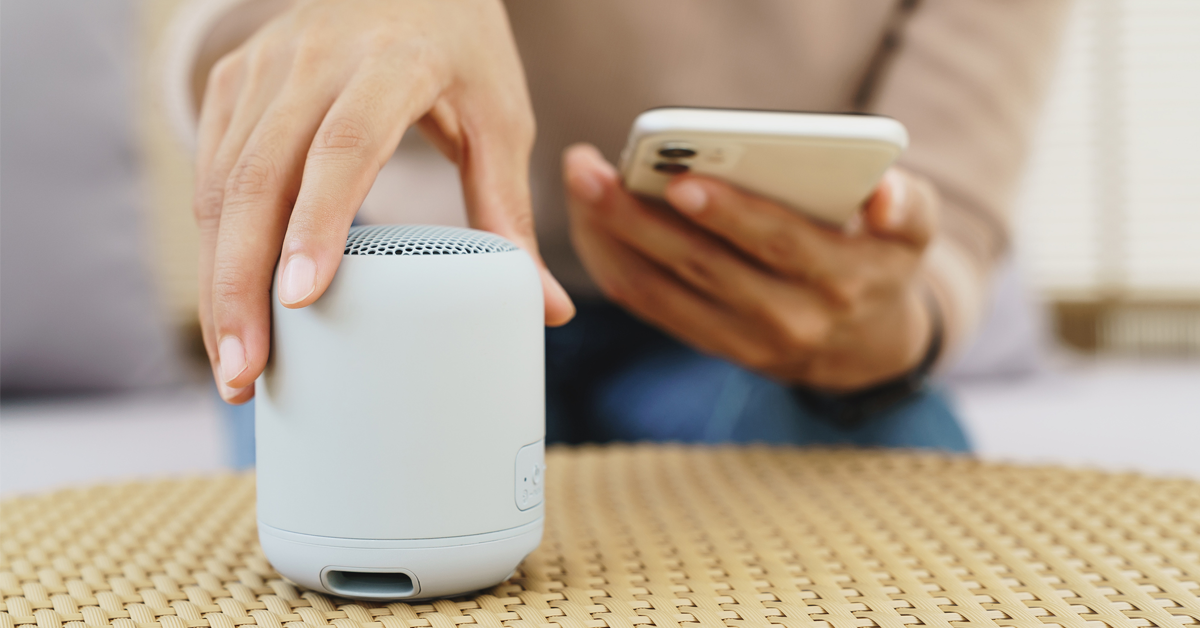For many dental offices, music is a great way to create a relaxing atmosphere, particularly in the waiting room. But if you are playing over-the-air radio or using a teammate’s personal streaming service at your practice, you may be breaking the law.
In this article, we’re going to explain the dos and don’ts of using music services in a commercial business and how you can play it without legal repercussions.
The role of rights and royalties
When learning about music at the workplace, the first thing to understand is the role of licenses. When you tune into local radio for music, the station has paid for the licenses required to play songs over its airwaves. Conversely, streaming services like Spotify have strict terms of use that limit accounts to personal use only. In both cases, there are rules around how many people are allowed to listen to the same broadcast or stream due to the type of license used to acquire the rights.
This is where Performance Right Organizations (PROs) come in. In short, these are groups that license the use of the artists’ rights they manage to music users. They also collect royalties when their music is publicly played in a commercial environment (this is considered a public performance). So, if a business does not have a commercial license, artists are not being paid the correct royalties. As a result, PROs are able enforce legal action for copyright violation.
What happens when a business is caught playing music without a commercial license
PROs monitor businesses at random to see if anyone is violating U.S. copyright law and the fines can add up at a rapid rate. In addition to a letter requesting license payment to the appropriate PRO, Chapter Five of the U.S. Copyright Law specifies statutory damages and fees on top of the licensing fee. These range from $750-$30,000, definitely not a cost any business wants to absorb.
If the letters are ignored, a court could determine the law was intentionally or willfully violated, which can incur further penalties of up to $150,000.
While it may seem unlikely that a small business could be caught playing music without a commercial license, the risk of a hefty price tag is not worth it.
Ways to obtain a commercial license
If you want to obtain an annual license to play music for commercial use, you need to determine which PRO to apply with, as each one has a different catalogue and different criteria depending on the type of business and situation. Prices vary, but some licenses can cost as much as $600-$700.
Fortunately, there are commercial business music services that remove the guesswork by providing access to multiple PROs for one cost. That way, businesses don’t have to worry about which PRO manages which song or business situation. Some of these include:
How businesses can play music without a commercial license
There are some limited parameters that allow for license-free music, depending on the medium used to play the songs and the very dimensions of the business itself.
According to the Fairness in Music Licensing Act of 1998, businesses can play over-the-air radio without a commercial license, but only if your business is smaller than 2,000 square feet (3,750 square feet for eating and drinking establishments). If your business meets that criteria, over-the-radio can be played if:
- There is no admission or cover fee for entry
- The business has no more than six speakers
- There are no more than four speakers in any one room adjoining an outdoor space
- The phone system is not connected to the radio for on-hold music
On the other hand, accounts on streaming platforms, like Spotify or Apple Music, are specifically created for personal, non-commercial use. Businesses are prohibited from using streaming services for commercial use and, unlike over-the-air radio, there are no exceptions.
A third option to consider is royalty-free music. While you don’t have to worry about paying royalties to the artist, there are usually licensing or attribution requirements you must follow in order to use their music. It is a topic with a lot of particulars, so make sure you do your research to see if this path is a good fit for your practice.
The bottom line: Playing music legally at a business isn’t as simple as turning on the radio. There can be big financial risks for not obtaining a commercial use license, so make sure you choose an option that allows you to play music with peace of mind.

